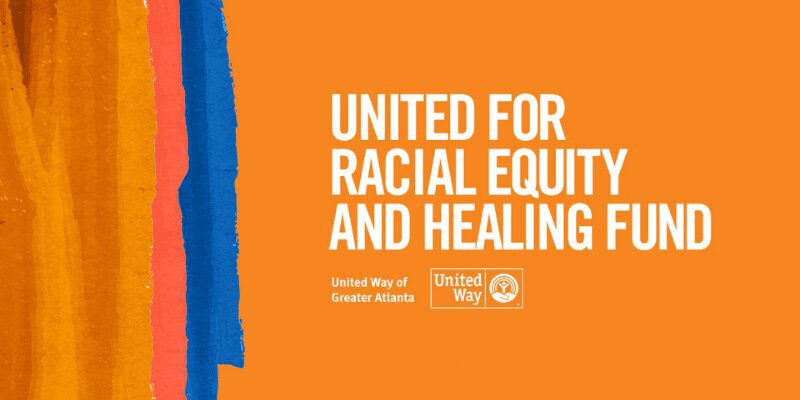Have you ever stopped to watch a tree swaying with a breeze?
Imagine sitting in your favorite park or looking out your window at a tree whose limbs spread wide reaching out 20 or 30 feet, with branches reaching two, maybe three stories toward the sky. With leaves that are starting to turn golden with the onset of fall, the tree is healthy. But what if instead of stretching far and wide on both sides, there were a set of broken branches? Or what if the leaves in the middle section were shriveling and turning brown?
What if there were signs of decay or damage not only to that one tree but to several other trees in different parts of the park?
When we think about our community, we can think of it like a forest of trees. Some trees represent our health system, some represent our education system, our housing system, financial system and so on. On the surface, the trees don’t seem connected, but what if there was the same problem with several trees?
We would need to look beneath the surface, examine the roots and its groundwater.
For too long in Greater Atlanta and across our country, systems we interact with every day have been trying to fix or help one tree at a time. But the problem is in the groundwater. What should provide essential nutrition and make a system strong has been tainted by systemic racism.
Similar to a forest of trees, a community thrives only from the ground up.
Our challenge is that across the Greater Atlanta region there are too many trees that are not thriving — where the branches and leaves have been fractured by serious storms and weakened at the roots because there was poison in the groundwater.
Groundwater represents the unseen ideologies that feed policies and investments—the roots of our communities. When the groundwater is poisoned, the roots feed that poison into our community through disregard and disinvestment for Black and Brown communities, embedding racial inequities in health, education and economic systems. As these policies “branch” out, our community becomes fragile and unable to weather the next unprecedented storm.
To have the thriving community we all aspire to, we must end systemic racism. We must invest in solutions that look to address the root causes of the problem. In other words: For groundwater problems, we need groundwater solutions.
United Way of Greater Atlanta launched its Child Well-Being efforts in 2017 in hopes of addressing these disparities. But the problems did not start then. To United Way of Greater Atlanta and many of our partner nonprofits across the metropolitan area, the data about racial disparities in health, education, housing and income is not new. What is new is the way we are looking at the connections across those issues.
With a groundwater approach, we see that the problem is not in the struggling students, the overworked parents, the uninsured neighbors. Instead, we see that the way institutions are set up and the policies in place prevent resources from flowing where they are needed most. We see that socio-economic difference does not explain the racial inequities that exist. We see that systems and representatives of those systems treat people differently based on race.
Decades of disinvestment has created instability, limited the opportunity of children and locked Black and Brown communities out of economic prosperity, and these policies have made the branches of Greater Atlanta weaker.
Acknowledging this reality is necessary, but not the end of our journey. We are on an equity journey. Today in the midst of so much turmoil and tragedy we have found information, insights and partners that renew our hope that this community can close the racial divides and strengthen the roots of our community.
By reading publications like Groundwater Approach by the Racial Equity Institute, attending trainings with the National Equity Project, listening to leaders at Partnership for Southern Equity, Annie E. Casey Foundation, TransFormation Alliance, and partnering with organizations like the Housing Justice League and New Georgia Project, to name a few, we call attention to the change needed to create a more inclusive Greater Atlanta.
When United Way announced the United for Racial Equity and Healing Fund in July 2020 to tackle the systemic issues underlying the correlation between race and zip codes, place and equity we knew that others would join taking on this challenge. We knew that it was time to unite and heal together.
“The correlation between race, zip codes and its effect on child well-being makes it critical for United Way to address place and racial equity strategically,” Katrina D. Mitchell, Chief Community Impact Officer at United Way of Greater Atlanta, said previously. “The decisions and actions we make today will significantly shape the future.”
And those actions, Mitchell says, are to invest in structural solutions that create effective, long-lasting change and address the root causes of racial inequity. To address these causes, we must invest in civic engagement, leadership and capacity building and education and awareness.
“The establishment of the United for Racial Equity and Healing Fund adds significant momentum towards the realization of a more just and inclusive Greater Atlanta,” Nathaniel Smith, Founder and Chief Equity Officer for the Partnership for Southern Equity, said in a previous report.
Smith encouraged others to participate in civic leadership, adding that “the journey towards racial equity for current and future generations is a difficult path to follow.” But it’s a necessary path to follow.
Help United Way create a more just, equitable and inclusive Greater Atlanta. Donate today to the United for Racial Equity and Healing Fund.





